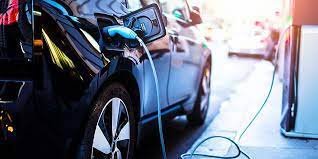Some of the largest Israeli companies with the biggest car fleets have added electric vehicle (EVs) options for their employees. The main models being offered are EVs manufactured in China and Europe with a price range of NIS 140,000- NIS 170,000. There is also especially high demand for Tesla cars in the NIS 180,000 - NIS 250,000 price range, mainly for senior managers. But meanwhile Tesla does not have the capability to meet demand for vehicle fleets in Israel.
Last week Amdocs Ltd. (Nasdaq: DOX) held an event for employees at which several EV options were presented. Amdocs is one of the first Israeli companies that is already offering employees incentives to move from gasoline to electric cars.
Amdocs wrote to employees, "As part of the company's policy of cutting gas emissions and as part of the policy of sustainability, the company is encouraging employees to travel less and with a preference for electric vehicles. Reduced travel drivers will earn a discount of hundreds of shekels per month, since the payment model is for the car and electricity consumption for just their travel. The current leasing model is contained in the average overall pricing of traveling about 27,000 kilometers per year and so for those who travel less than the average this is a model that pays economically as well as the environmental aspect. We are always considering additional benefits and incentives."
As part of the EV package, Amdocs is of course offering charging points in the company car park, with Amdocs new campus to which it will soon be moving built with this purpose in mind.
Israel Aerospace Industries Ltd. (IAI) (TASE: ARSP.B1), which has a fleet of more than 2,000 vehicles, also arranged an event over the past week to present employees with EV options. Elbit Systems Ltd. (Nasdaq: ESLT; TASE: ESLT), which has one of the country's biggest fleets, is offering employees a choice of six different EVs. Intel Israel and Microsoft Israel are among other large companies already offering employees EVs.
ICL (TASE: ICL: NYSE: ICL) (formerly Israel Chemicals) recently made the decision on principle to switch to an EV fleet for its employees and other large companies are expected to follow suit.
So while the government may be foot dragging in terms of introducing infrastructures and tax incentives for EVs, the business sector is pushing ahead on the matter.
Related News

